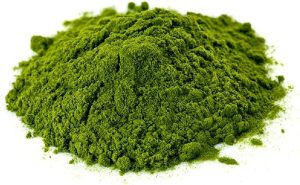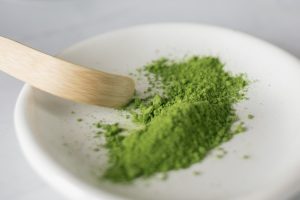
- Overview of Hesperidin
- Brief History of Hesperidin
- Functions of Hesperidin
- Recommended Daily Intake (RDI), Recommended Dietary Allowance (RDA), Adequate Intake (AI), or Reference Nutrient Intake (RNI) for Hesperidin
- Deficiency of Hesperidin
- Food Sources of Hesperidin and Where to Get It From
- Hesperidin and Its Interaction with Other Medications
- Websites and Articles to Delve into the Benefits of Hesperidin
- Disclaimer
Overview of Hesperidin
Hesperidin, a flavonoid abundantly present in citrus fruits like oranges, lemons, and grapefruits, is celebrated for its potential health-promoting properties. As a powerful antioxidant, hesperidin helps combat oxidative stress, protecting cells from damage caused by free radicals. Its anti-inflammatory attributes are of particular interest, as hesperidin has demonstrated the ability to modulate inflammatory pathways, suggesting potential benefits for conditions involving inflammation.
Research indicates that hesperidin may play a role in cardiovascular health by promoting the strength and flexibility of blood vessels. Studies suggest that it might contribute to reducing blood pressure and improving lipid profiles. Additionally, hesperidin has been explored for its immune-modulating effects, which could have implications for immune system support. While hesperidin is naturally obtained through citrus consumption, its concentrated form is also available in supplement form. Individuals considering hesperidin supplements are advised to consult with healthcare professionals, especially those with existing health conditions or taking medications, to ensure safe and appropriate use.
Brief History of Hesperidin
Hesperidin, a flavonoid belonging to the citrus bioactive compound family, has a history intertwined with the cultivation and consumption of citrus fruits. The compound was first identified in the mid-19th century, and its name is derived from “Hesperides,” the nymphs in Greek mythology who guarded the golden apples.
Over time, hesperidin gained attention for its presence in citrus peels, particularly oranges and lemons. Citrus fruits have been integral to traditional medicine in various cultures, and their consumption has been associated with health benefits. Hesperidin, along with other citrus bioflavonoids, became a subject of scientific inquiry due to its antioxidant and anti-inflammatory properties.
In the modern era, research has delved into the potential health effects of hesperidin, ranging from cardiovascular benefits to immune system modulation. While hesperidin-rich foods remain a staple in many diets, hesperidin supplements have also gained popularity. Ongoing studies continue to explore its mechanisms of action and therapeutic applications in the realm of human health and well-being.
Functions of Hesperidin
Hesperidin, a flavonoid primarily found in citrus fruits, exhibits various potential health benefits due to its antioxidant and anti-inflammatory properties. Here are some key functions associated with hesperidin:
- Antioxidant Activity:
- Hesperidin acts as a potent antioxidant, helping to neutralize free radicals in the body. This antioxidant activity contributes to cellular protection and may reduce oxidative stress.
- Cardiovascular Support:
- Studies suggest that hesperidin may have cardiovascular benefits. It is thought to enhance the strength and flexibility of blood vessels, potentially improving blood flow and reducing the risk of cardiovascular diseases.
- Anti-Inflammatory Effects:
- Hesperidin has demonstrated anti-inflammatory properties, modulating various pathways involved in the inflammatory response. This makes it a subject of interest in conditions where chronic inflammation plays a role.
- Blood Pressure Regulation:
- Research indicates that hesperidin may help regulate blood pressure. It could contribute to vasodilation, the widening of blood vessels, potentially leading to improved blood flow and reduced blood pressure.
- Cholesterol and Lipid Management:
- Hesperidin has been studied for its potential to improve lipid profiles, including reducing levels of LDL (“bad”) cholesterol. This suggests a role in managing lipid metabolism and cardiovascular health.
- Immune Modulation:
- Some research suggests that hesperidin may modulate the immune system. It could influence the activity of immune cells, potentially contributing to immune system support.
- Neuroprotective Effects:
- Emerging evidence suggests that hesperidin may have neuroprotective properties, offering potential benefits for brain health and protection against neurodegenerative conditions.
- Anticancer Properties:
- While more research is needed, some studies indicate that hesperidin may possess anticancer properties, potentially inhibiting the growth of certain cancer cells.
- Skin Health:
- Hesperidin’s antioxidant and anti-inflammatory properties may contribute to skin health. It is sometimes used in topical formulations for its potential benefits in reducing skin inflammation.
- Gastrointestinal Health:
- Hesperidin has been investigated for its potential protective effects on the gastrointestinal system, including anti-ulcer and anti-inflammatory properties.
It’s important to note that while hesperidin shows promise in these areas, more research is needed to fully understand its mechanisms of action and establish definitive recommendations for its use. As with any supplement or dietary component, moderation is key, and consulting with a healthcare professional is advisable, especially for individuals with existing health conditions or those taking medications.
Recommended Daily Intake (RDI), Recommended Dietary Allowance (RDA), Adequate Intake (AI), or Reference Nutrient Intake (RNI) for Hesperidin
There are no established Recommended Daily Intake (RDI), Recommended Dietary Allowance (RDA), Adequate Intake (AI), or Reference Nutrient Intake (RNI) values specifically defined for hesperidin. Hesperidin is a bioactive compound found in citrus fruits, and it is not classified as an essential nutrient with defined daily requirements.
Hesperidin is typically consumed as part of a balanced diet that includes citrus fruits, such as oranges, lemons, and grapefruits. The amounts of hesperidin can vary depending on the type and amount of citrus fruits consumed.
If you are interested in incorporating more hesperidin into your diet, the best approach is to consume a variety of citrus fruits and their peels. These fruits provide a natural source of hesperidin along with other beneficial compounds and nutrients.
As research on bioactive compounds like hesperidin continues, it’s advisable to stay updated on the latest scientific literature or consult with healthcare professionals or registered dietitians for any evolving recommendations or guidelines. Dietary supplements containing hesperidin are also available, but their use should be discussed with a healthcare provider, especially if you have existing health conditions or are taking medications.
Deficiency of Hesperidin
There is no recognized deficiency of hesperidin. Hesperidin is a bioflavonoid found in citrus fruits, particularly in the peels, and it is not classified as an essential nutrient with established dietary requirements.
Bioflavonoids, including hesperidin, are considered beneficial for health due to their antioxidant and anti-inflammatory properties, but they are not considered essential nutrients for basic physiological functions.
A varied and balanced diet that includes a range of fruits and vegetables, including citrus fruits, typically provides an adequate intake of bioflavonoids, including hesperidin. Deficiencies in bioflavonoids are not commonly reported, and their consumption is generally associated with overall health and wellness.
It’s important to note that while hesperidin is not associated with deficiency, including a variety of nutrient-rich foods in your diet is crucial for overall health. If you have specific health concerns or dietary needs, it is advisable to consult with a healthcare professional or a registered dietitian for personalized advice. Additionally, since my information is current as of January 2022, it’s a good idea to check for any updates or new research on this topic.
Food Sources of Hesperidin and Where to Get It From
Hesperidin is primarily found in citrus fruits, particularly in the peels and membranes. Including a variety of citrus fruits in your diet can help ensure a good intake of hesperidin. Here are some common food sources:
- Oranges:
- Oranges, especially the peels and membranes, are rich in hesperidin. Consider using orange zest in cooking or consuming whole oranges.
- Grapefruits:
- Grapefruits, particularly the pink and red varieties, contain hesperidin. Include grapefruit segments or juice in your diet.
- Lemons:
- Lemons, along with their peels, provide hesperidin. Use lemon zest in recipes and consider incorporating lemon juice into your meals.
- Limes:
- Limes, like lemons, contain hesperidin. Use lime zest and juice in dishes to add flavor and nutritional benefits.
- Tangerines and Clementines:
- Tangerines and clementines are other citrus fruits that contain hesperidin. Enjoy them as snacks or add them to salads.
- Citrus Juices:
- Freshly squeezed citrus juices, such as orange juice, grapefruit juice, or lemonade, can provide hesperidin. Opt for freshly squeezed juices to maximize nutrient content.
- Citrus Peels:
- The peels of citrus fruits, such as oranges and lemons, are particularly rich in hesperidin. Consider using zest in cooking or making candied citrus peels.
It’s important to note that hesperidin is concentrated in the peels and membranes of citrus fruits, so consuming the whole fruit (including the peel when appropriate) can provide more hesperidin than just drinking the juice.
If you’re interested in increasing your hesperidin intake, incorporating a variety of citrus fruits into your diet is a delicious and nutritious way to do so. Remember that a diverse and balanced diet that includes a range of fruits and vegetables is key to overall health.
Hesperidin and Its Interaction with Other Medications
Hesperidin, like many bioactive compounds, has the potential to interact with certain medications. It’s important to be aware of these potential interactions and consult with a healthcare professional before using hesperidin supplements, especially if you are taking medications. Here are some considerations:
- Blood Pressure Medications:
- Hesperidin may have blood pressure-lowering effects. Combining it with antihypertensive medications could potentially lead to an additive effect, resulting in excessively low blood pressure. If you are taking medications for high blood pressure, consult your healthcare provider before using hesperidin supplements.
- Blood Thinners (Anticoagulants/Antiplatelet Drugs):
- Hesperidin may have antiplatelet effects, meaning it could potentially increase the risk of bleeding when taken with blood-thinning medications like warfarin, aspirin, or clopidogrel. If you are on anticoagulant therapy, consult with your healthcare provider before using hesperidin supplements.
- Calcium Channel Blockers:
- Some research suggests that hesperidin may have calcium channel-blocking effects. Combining it with medications that also have these effects, such as certain calcium channel blockers, could potentially lead to additive effects on blood pressure.
- Cytochrome P450 Interactions:
- Hesperidin may interact with enzymes in the liver, including cytochrome P450 enzymes. This interaction could affect the metabolism of certain drugs, potentially altering their blood levels. If you are taking medications metabolized by these enzymes, consult with your healthcare provider.
- Statins (Cholesterol-Lowering Medications):
- There is limited evidence suggesting that hesperidin may interact with statin medications. It’s advisable to consult with your healthcare provider if you are taking statins and considering hesperidin supplements.
Always inform your healthcare provider about any supplements you are taking, including hesperidin, and disclose your complete medication list. Individual responses to supplements can vary, and professional guidance is crucial to ensure your safety and well-being. It’s also important to keep in mind that dietary supplements, including hesperidin, should not be used as a substitute for a varied and balanced diet.
Websites and Articles to Delve into the Benefits of Hesperidin
Below is the compilation of information about hesperidin from the provided websites:
- Wikipedia – Hesperidin:
- Wikipedia provides an overview of hesperidin, covering its chemical structure, natural sources, and potential health benefits.
- WebMD – Hesperidin:
- WebMD offers information on hesperidin, including its uses, side effects, interactions, and potential health benefits.
- Verywell Health – What You Need to Know About Hesperidin:
- Verywell Health discusses what you need to know about hesperidin, its sources, potential benefits, and considerations.
- ScienceDirect – Hesperidin:
- ScienceDirect provides information on hesperidin in the context of medicine and dentistry, covering various aspects related to its use.
- Examine.com – Hesperidin:
- Examine.com offers a detailed analysis of hesperidin, including its mechanisms of action, potential benefits, and recommended dosages.
- RxList – Hesperidin:
- RxList provides information on hesperidin, its uses, potential side effects, and interactions with medications.
- Dr. Axe – Hesperidin:
- Dr. Axe discusses hesperidin and its potential health benefits, including its role in supporting cardiovascular health and reducing inflammation.
Here you can explore these sources for a comprehensive understanding of hesperidin and its various aspects. As always, consult with healthcare professionals for personalized advice and recommendations.
Disclaimer
The information is solely provided for educational purposes. It is not intended to diagnose, treat, cure, or prevent any disease. Seek the advice of your physician or qualified healthcare provider with any questions you may have regarding a medical condition at all times. Never disregard professional medical advice because of something you have read or learned from this article.






